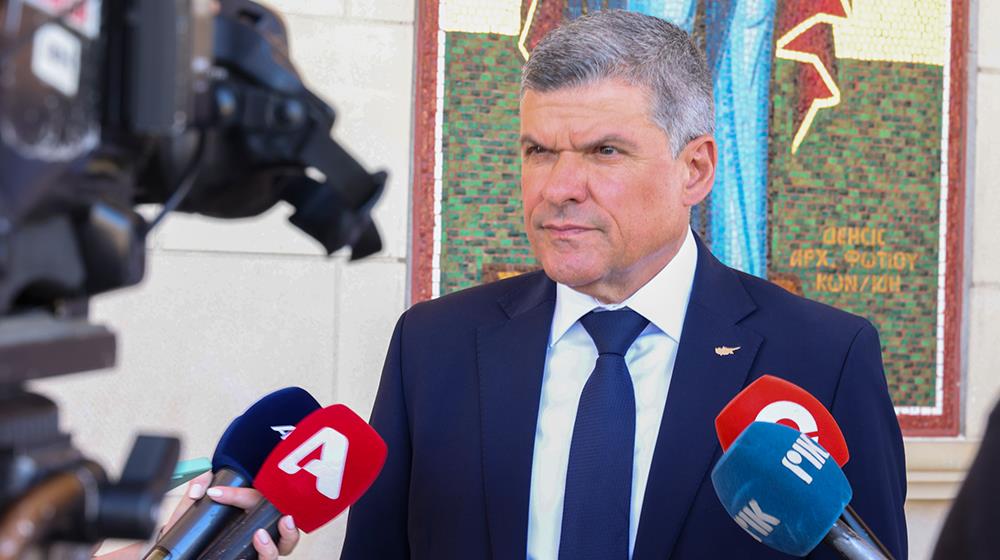The European Green Deal involves significant costs that could affect the competitiveness of EU member states, according to Energy Minister George Papanastasiou.
Speaking to reporters on the sidelines of an event in Nicosia over the weekend, Papanastasiou called for balance between environmental commitments and economic resilience during the green transition.
Asked on the extension of the EU Emissions Trading System (ETS) to industry and transport after Cyprus’ Parliament passed an EU harmonisation bill on Thursday, he said that the new law is not expected to directly burden the Cypriot economy.
The Minister explained that Cyprus’s major industries — including cement and brick manufacturing — are already part of the system. As a result, no immediate cost increase is anticipated for other industrial sectors, as Cyprus lacks heavy industry that would be significantly affected.
Papanastasiou also pointed out that shipping is already covered by the ETS, while aviation has not yet been included, a development that, if it occurs, as he said, could have a notable impact. However, he noted that all climate-related measures must be assessed in light of their effect on the competitiveness of European economies.
He added that the EU itself has acknowledged that the rapid implementation of the Green Transition and Green Deal entails costs that could challenge the economic performance of its member states.
“Therefore, in the upcoming discussions at Council level, this will be one of the key topics discussed in depth,” he said.
The Minister concluded by stressing that while the green transition is a vital commitment, it must be pursued in a way that protects Europe’s economic competitiveness, given its immediate impact on national economies.
(Source: CNA)









